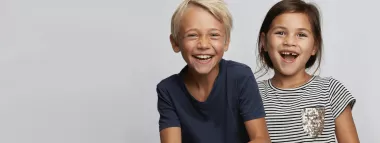Why become changemakers?
As society, we are currently facing major challenges. Everyone’s effort is needed to create a sustainable future. A growing group of people, of all ages and background, try to tackle issues that are related to environmental, social and economic sustainability by entrepreneurial action. They are referred to as changemakers or social entrepreneurs. Social entrepreneurs commit themselves to social issues and are sensitive to their own needs, the needs of others and of the world. We can all become social entrepreneurs, and thus contribute to creating a better world.
What is Social Entrepreneurship Education (SEE)?
lt is considered more and more important to address sustainable development challenges in education for learners of all ages. One way of doing this is with Social Entrepreneurship Education (SEE), education that focuses on empowering learners of all ages to create valuable contributions to sustainable development issues through social entrepreneurship.
Children learn to become social entrepreneurs with real world issues about sustainable development. For example, plastic soup and global warming, but also issues like the quality of life in a neighbourhood, prejudice, discrimination and poverty. All these aspects are reflected in the Sustainable Development Goals (SDGs) formulated by the United Nations.
Children who are equipped to become social entrepreneurs, learn how they - as young as they are- can take initiative and create value, and thus make a change for the better!
‘SEE-ing a better world’ | an international blended programme on SEE
What are the objectives of the programme?
- You will develop your critical thinking skills.
- You will be able to illustrate what Social Entrepreneurship is about because you will actively search for and share good practices in the field of social entrepreneurship.
- You will know more about Social Entrepreneurship Education (SEE) and Sustainable Development Goals (SDG's) by reading, sharing and discussing literature with group members and by visiting a primary school that conducts social entrepreneurship education.
- Together with peers from your home country, you will study SEE-practices in your own country, and you will exchange findings in the international group.
- You will get acquainted with good practices in the field of SEE.
- In a small international group, you will design and carry out an SEE-activity for primary school children in The Netherlands.
- You will be able to function as an ambassador for SEE.
What are we going to do and where is it?
The International Blended Programme consists of two parts:
online meetings in various group compositions: the whole international group, your country group and a small international group (4-6 persons)
an international week in Utrecht, The Netherlands.
When is it taking place?
before 13 February | Physical or online country group meetings |
13 February | Online international whole group meeting |
13 February - 13 March | Physical or online country group meetings in your country group Online small group international meetings (dates and time will be set in mutual agreement) |
13-17 March | International week in Utrecht, The Netherlands |
After 17 March | One or two (online) country group meetings |
Programme information
Programme language: English
13 February (online international whole group session)
get to know each other and build an international students’ team of 4-7 people, exchange of email-addresses to be able to contact your international partners
learn more about the program and get to know which tasks you should finish before the physical week at Utrecht, Netherlands
don’t worry – the tasks are interesting and manageable (see assignments)
13 February – 13 March: prepare the tasks for the physical week, arrange meetings individually
13 – 17 March: week on campus of Marnix Academie, University of Applied Sciences for Primary Teacher Education in Utrecht, The Netherlands
Monday: Welcome, meeting with your international peers, presentations, lecture, start course diary and diner
Tuesday: Lecture, work in international group, preparations for short lesson and video assignment, visit to a Dutch primary school that uses SEE.
Wednesday: Video preparation, exploring Utrecht city, preparing short lesson, time to write in your course diary
Thursday: Teach the short lesson in a primary school with your international group, work on the video
Friday: Finalizing your video assignment, presenting the videos, wrap up meeting with your country group
Assignments
- Read literature on SEE (we will recommend appropriate articles for you, even in your language)
- Interview two people and ask them about their ideas contributing to sustainability
- Prepare a presentation, together with your country colleagues for the international partners what kind of SEE-activities are already there in your home country
- Keep a course diary about best practice examples and your learning experiences,
- Plan a short lesson in your international group and give this lesson with the pupils at a Dutch primary school (during the international week)
- Create a video in the international group during the international week
- Complete your course diary with an evaluation
- (Online) meeting after the international week in your country group
When and how to apply
Closing date for application: 12 December 2022. As the number of participants is limited, the following is important: the sooner you apply, the greater the chance that you can participate!
For applying send an email to the contact person on your campus (see your contact persons listed at the bottom of the page). If you what extra information or have further questions, please also contact this person.
Contact information
Want more information or have questions? Please contact:
Austria
International Office KPH Wien/Krems: richard.pirolt@kphvie.ac.at
Elisabeth Fernbach (organization): elisabeth.fernbach@kphvie.ac.at
Andrea Bisanz (contentwise): andrea.bisanz@kphvie.ac.at
Finland
Sari Harmoinen, University of Oulu: sari.harmoinen@oulu.fi
International studies (student issues): Karri Hurskainen: karri.hurskainen@oulu.fi
The Netherlands
International Office Marnix Academie, Roos den Houdijker: internationaloffice@hsmarnix.nl
Stella van der Wal-Maris (content and programme information): s.vdwal@hsmarnix.nl
Marion Ooijevaar(organization and programme information): m.ooijevaar@hsmarnix.nl
Czech Republik
Petra Vystrcilova: vystrcilova@ped.muni.cz
